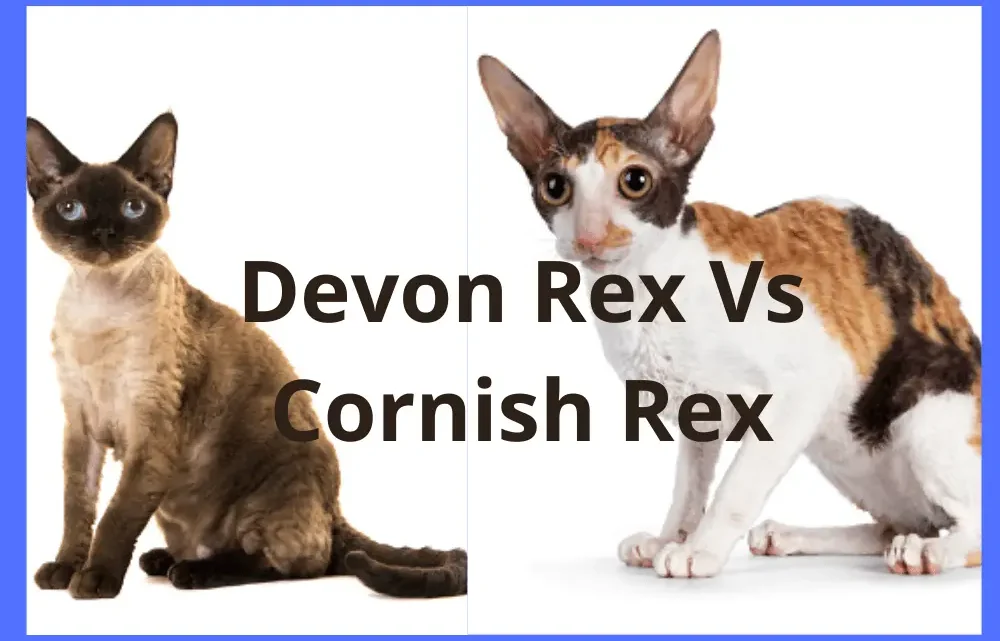
Difference Between Devon Rex and Cornish Rex: Key Comparisons
When it comes to choosing the right cat breed, understanding the difference between Devon Rex and Cornish Rex is key for potential owners. Sure, they both have that signature curly coat, but that’s just the beginning. Each breed has its own unique quirks—whether it’s personality, grooming needs, or health considerations—that can make or break your experience as a cat parent. Imagine cuddling a Devon Rex, who’s all about snuggling, versus the Cornish Rex, a more energetic and curious soul.
The right choice depends on your lifestyle, home environment, and how much time you’re willing to spend on care. Understanding these differences can save you a lot of trouble down the road. It’s not just about picking a cute face—it’s about picking the right companion for your life. So, let’s dive into the details and see what makes these breeds tick!
Physical Appearance Comparison
Understanding the distinct physical traits of the Devon Rex and Cornish Rex is crucial for potential cat owners. While both breeds share the “rex” gene, their appearances differ significantly.
What Are the Key Physical Differences Between Devon Rex and Cornish Rex Cats?
- Facial Features: The Devon Rex has a rounder, pixie-like face with large, wide-set eyes and a prominent cheekbone structure. In contrast, the Cornish Rex boasts a more refined, wedge-shaped head with high cheekbones and almond-shaped eyes, giving it an elegant appearance .
- Body Shape: The Devon Rex exhibits a compact, muscular build with a broad chest and slightly arched back. The Cornish Rex, on the other hand, has a slender, graceful body with a long, curved back and fine bones, often described as “greyhound-like” .
- Size: The Devon Rex typically weighs between 6 to 9 pounds, while the Cornish Rex is slightly lighter, averaging 6 to 8 pounds. Despite their similar weight, the Cornish Rex’s slender frame gives it a more delicate appearance .
How Do the Fur Textures and Grooming Needs Differ Between Devon Rex and Cornish Rex Cats?
- Fur Texture: The Devon Rex has a soft, wavy coat with loose curls, giving it a plush feel. In contrast, the Cornish Rex possesses a fine, silky coat with tight, marcel-wave curls, resulting in a smoother texture .
- Grooming Needs: Due to its delicate coat, the Devon Rex requires gentle grooming to prevent hair breakage. Over-brushing can lead to bald spots. The Cornish Rex, with its tighter curls, needs regular grooming to prevent matting and to manage oil buildup. Bathing every 1 to 2 weeks is recommended to maintain coat health .
- Hypoallergenic Qualities: Both breeds are considered hypoallergenic due to their minimal shedding. However, individual reactions can vary, and it’s advisable for allergy sufferers to spend time with the breed before making a decision .
Do Devon Rex and Cornish Rex Cats Have Different Coat Colors and Patterns?
- Color Variety: Both breeds come in a wide range of colors. The Devon Rex is available in various solid colors, tabby patterns, and bi-color combinations. The Cornish Rex also offers a broad spectrum of colors, including solid, bicolor, calico, tabby, and tortoiseshell patterns .
- Pattern Preferences: While both breeds exhibit diverse coat patterns, the Devon Rex is often noted for its unique bi-color and tabby patterns. The Cornish Rex is recognized for its sleek, uniform patterns, with some variations in color intensity .
Temperament and Personality
Understanding the temperament and personality of the Devon Rex and Cornish Rex is crucial for potential cat owners. While both breeds share some similarities, they also exhibit distinct traits that can influence the choice of the right feline companion.
What is the Temperament of a Devon Rex vs a Cornish Rex?
- Devon Rex: Known for their affectionate and playful nature, Devon Rex cats are often described as “dog-like” due to their loyalty and desire for human companionship. They are highly social and enjoy being the center of attention, often following their owners around the house and engaging in interactive play.
- Cornish Rex: Cornish Rex cats are equally affectionate but tend to be more energetic and mischievous. They are intelligent and curious, often getting into things they shouldn’t. Their playful antics and high energy levels make them entertaining companions.
Are Devon Rex Cats More Playful or Affectionate Than Cornish Rex Cats?
- Devon Rex: While both breeds are playful, Devon Rex cats are particularly known for their affectionate behavior. They enjoy cuddling and often seek out human interaction. Their playful nature is balanced with a strong desire for companionship.
- Cornish Rex: Cornish Rex cats are more energetic and playful, often engaging in acrobatic feats and seeking out interactive toys. Their playful behavior is more independent, and they may entertain themselves when their owners are unavailable.
How Do Their Socialization and Activity Levels Compare?
- Devon Rex: Devon Rex cats are highly social and adapt well to various environments. They get along with children and other pets, making them suitable for families. Their activity level is moderate; they enjoy playtime but also appreciate lounging and cuddling.
- Cornish Rex: Cornish Rex cats are more active and require ample stimulation. They thrive in environments where they can explore and engage in physical activities. Their social nature means they enjoy being around people and other pets but may need more space to expend their energy.
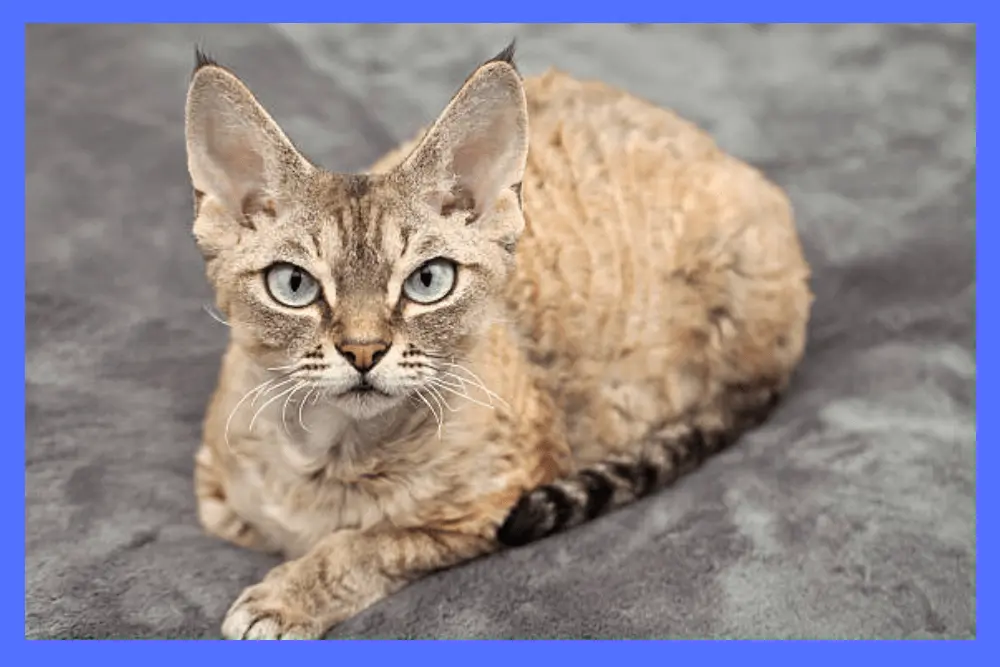
Health and Grooming Considerations
What Are the Grooming Needs and Routines for Devon Rex and Cornish Rex Cats?
- Devon Rex: Grooming a Devon Rex is relatively straightforward due to its soft, wavy coat. However, it’s important to brush them regularly to prevent tangles and mats. Weekly brushing with a soft brush is typically sufficient. Since they shed less, they do not need constant brushing, but the grooming should be thorough enough to keep their coat in good condition. Bathing a Devon Rex is usually done once a month to help remove oils and dirt. Special attention is needed to clean their ears, as their large ears can accumulate wax, leading to possible infections.
- Cornish Rex: The Cornish Rex requires more frequent grooming due to its tightly curled coat. Frequent brushing—ideally every 2-3 days—is essential to prevent matting and to maintain the coat’s texture. Bathing is also more frequent compared to the Devon Rex, usually recommended every 3-4 weeks. Cornish Rex cats often have oily skin, so bathing helps to keep the coat looking sleek and shiny. As with the Devon Rex, their ears require regular cleaning to avoid wax buildup.
Are There Any Health Concerns Specific to Devon Rex or Cornish Rex Cats?
- Devon Rex: While the Devon Rex is generally a healthy breed, it is prone to a few specific health issues. One common concern is skin conditions due to its lack of a dense coat, which can make their skin more susceptible to infections. Additionally, hip dysplasia and heart disease (specifically hypertrophic cardiomyopathy) have been noted in some cases. Regular vet check-ups are crucial to catch any early signs of these conditions. Proper grooming also helps in keeping their skin healthy by preventing any rashes or irritation caused by friction.
- Cornish Rex: Cornish Rex cats are also fairly healthy, but they are susceptible to certain conditions such as hypertrophic cardiomyopathy (heart disease), which is common in many cat breeds. Another concern is their sensitive skin, as their lack of fur protection makes them more prone to sunburns, rashes, and even dermatitis. Additionally, their high energy levels and acrobatic nature can lead to joint issues or soft tissue injuries if not properly managed. Regular vet visits and preventive care are vital to keeping these issues at bay.
Which Breed Is Easier to Care for in Terms of Grooming and Health?
- Grooming: In terms of grooming, the Devon Rex is slightly easier to care for. Its coat is softer, and it does not require as much attention as the Cornish Rex, whose tight curls need more frequent care to prevent matting and oil buildup. However, the Cornish Rex’s skin needs more attention due to its tendency to get oily.
- Health Maintenance: Both breeds have their health concerns, but in terms of overall health maintenance, the Devon Rex might be slightly easier to care for. It’s typically less prone to the heart conditions that affect the Cornish Rex. However, regular vet checkups are important for both breeds to ensure they remain healthy, as early detection can help prevent more serious issues.
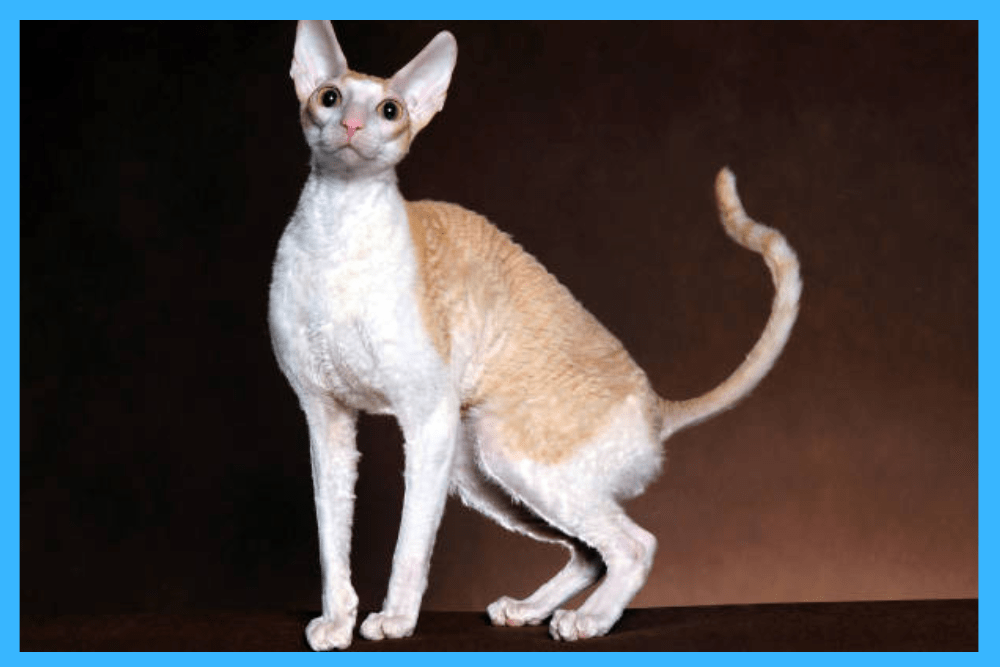
Origins and History
Understanding the origins of the Devon Rex and Cornish Rex provides insight into their unique characteristics and the development of these distinctive breeds.
What is the History of the Devon Rex and Cornish Rex Breeds?
Both breeds originated in England, emerging from spontaneous genetic mutations that led to their unique curly coats.
How Did the Devon Rex Breed Originate?
In 1960, a curly-coated kitten named Kirlee was found in a litter of stray cats near Buckfastleigh, Devon. Initially, it was believed that Kirlee’s coat was related to the Cornish Rex breed. However, attempts to breed Kirlee with Cornish Rex cats resulted in kittens with straight coats, indicating a different genetic mutation. Recognizing this, Beryl Cox began a breeding program to preserve Kirlee’s unique traits, leading to the establishment of the Devon Rex breed. The breed was officially recognized by the Cat Fanciers’ Association in 1979 .
How Did the Cornish Rex Breed Originate?
The Cornish Rex breed traces its roots to a natural mutation in 1950 in Cornwall, England. A cream-colored male kitten named Kallibunker was born in a litter of barn cats, exhibiting a distinctive curly coat. His owner, Mrs. Nina Ennismore, recognized the uniqueness of Kallibunker’s coat and began breeding him, leading to the development of the Cornish Rex breed. The breed’s name derives from “Cornish,” referencing its place of origin, and “Rex,” a term used in rabbit breeding to denote curly coats

Choosing the Right Breed for Your Household
Deciding between a Devon Rex and a Cornish Rex involves considering your living space, activity level, and household dynamics. Here’s a practical comparison to help you choose the right fit.
Which Breed Is Better for Your Household: Devon Rex or Cornish Rex?
- Living Space Compatibility:
- Devon Rex: Adaptable to various living environments, including apartments. Their playful nature makes them suitable for active households.
- Cornish Rex: Thrives in homes with ample space to accommodate their energetic playfulness.
- Activity Level:
- Devon Rex: High energy; enjoys interactive play and climbing.
- Cornish Rex: Extremely active; requires regular stimulation and exercise.
- Socialization:
- Devon Rex: Highly social; enjoys being around people and other pets.
- Cornish Rex: Affectionate; bonds closely with family members.
Both breeds are suitable for households that can provide attention, playtime, and a warm environment.
Which Breed Is More Suitable for Families with Young Children?
- Devon Rex:
- Known for their gentle and playful nature, making them excellent companions for children.
- Their affectionate demeanor fosters strong bonds with young family members.
- Cornish Rex:
- Energetic and curious; enjoys interactive play with children.
- Their intelligence allows them to engage in activities that stimulate young minds.
Both breeds can thrive in family settings, provided that children are taught to handle them gently and respectfully.

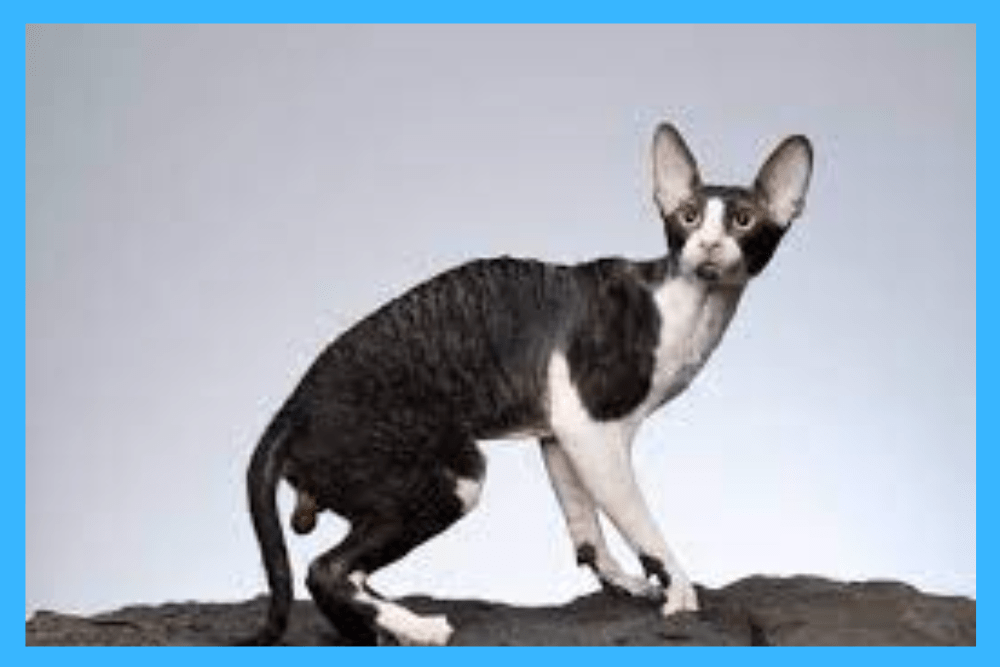
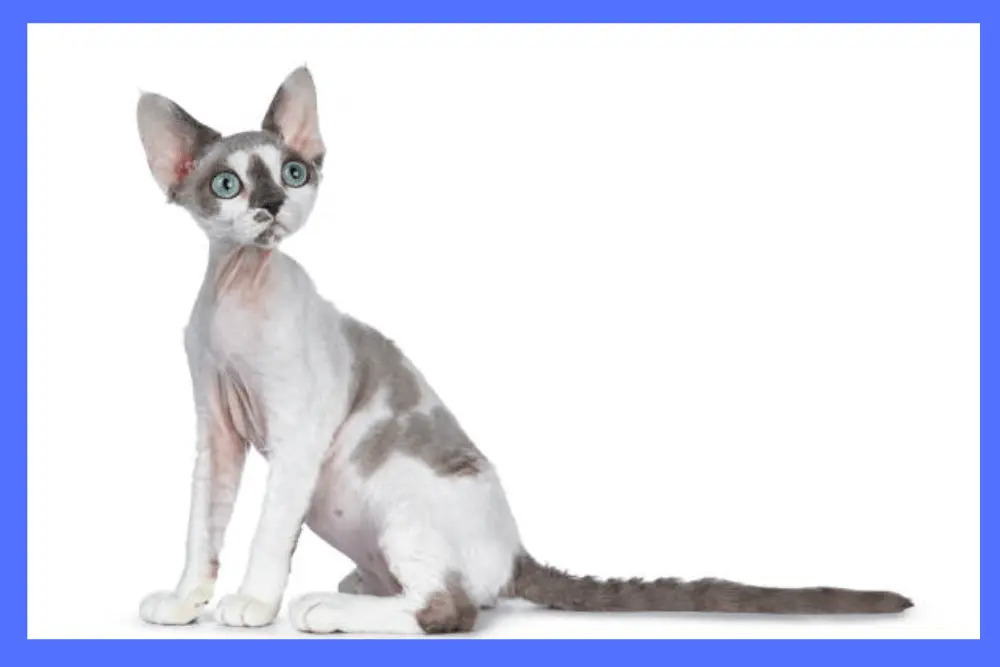
📚 Sources
- The Cat Fanciers’ Association (CFA) – Devon Rex breed profile and recognition
👉 https://cfa.org/devon-rex - The International Cat Association (TICA) – Devon Rex breed standards
👉 https://tica.org/breeds/browse-all-breeds?view=article&id=868 - The Cat Fanciers’ Association (CFA) – Cornish Rex breed profile and recognition
👉 https://cfa.org/cornish-rex - PetMD – Devon Rex and Cornish Rex health considerations
👉 https://www.petmd.com - WebMD – Cornish Rex breed traits and care
👉 https://www.webmd.com/pets/cats/what-to-know-about-a-cornish-rex - The Spruce Pets – Care guide for both Devon Rex and Cornish Rex cats
👉 https://www.thesprucepets.com - Petplan – Devon Rex grooming and health tips
👉 https://www.petplan.co.uk


